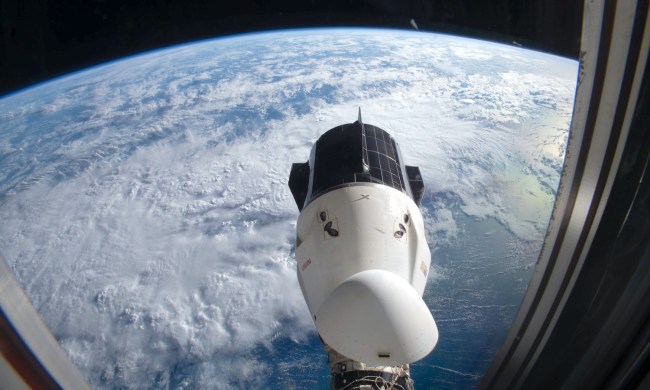SpaceX ran into trouble Tuesday evening when a small fire erupted from the engine of a prototype rocket it was testing at the company’s facility in Boca Chica, Texas.
The rocket in question is an early prototype of the company’s Starship rocket called Starhopper. Ultimately Starship is expected to be used for space tourism, specifically to transport up to 100 passengers from Earth to the moon and Mars.
The fire, captured on video by Everyday Astronaut, produced a large burst of flames just after SpaceX tested the rocket’s engine. It wasn’t immediately clear whether Starhopper was damaged in the incident. We’ve reached out to SpaceX to find out how exactly the fire impacted the rocket — if at all — and will update this story if we hear back.
Unlike some other space vessels, Starship, Spacehopper’s big brother, is expected to be completely reusable. Much like an airplane, it will be able to take off and land multiple times. SpaceX’s Falcon series of rockets are currently partially reusable.
The vessel was originally named “Big Falcon Rocket.” CEO Elon Musk changed the name of the rocket to Starship last year. When he announced the name change on Twitter a commenter mentioned “unless this starship is sent on a mission to another star system it can’t be called a starship” to which Musk replied, “Later versions will.”
Starhopper is meant to be a test rocket for the Starship project. During tests, the spacecraft has been flying short flights at a low altitude as a way of proving the technology used to power it actually works. If the project takes off, it could revolutionize space travel (and make it significantly less expensive by reusing the same rocket).
The spacecraft uses SpaceX’s “Raptor” rocket engines, and the company plans to gradually add more of those engines over time, ultimately reaching the seven engines expected to be included in the final Starship rocket. That rocket will also have an additional 31 Raptor engines as part of a “Super Heavy” booster. SpaceX completed its first test of Starhopper in April.
Inaugural missions for Starship are expected to happen as early as 2021.



